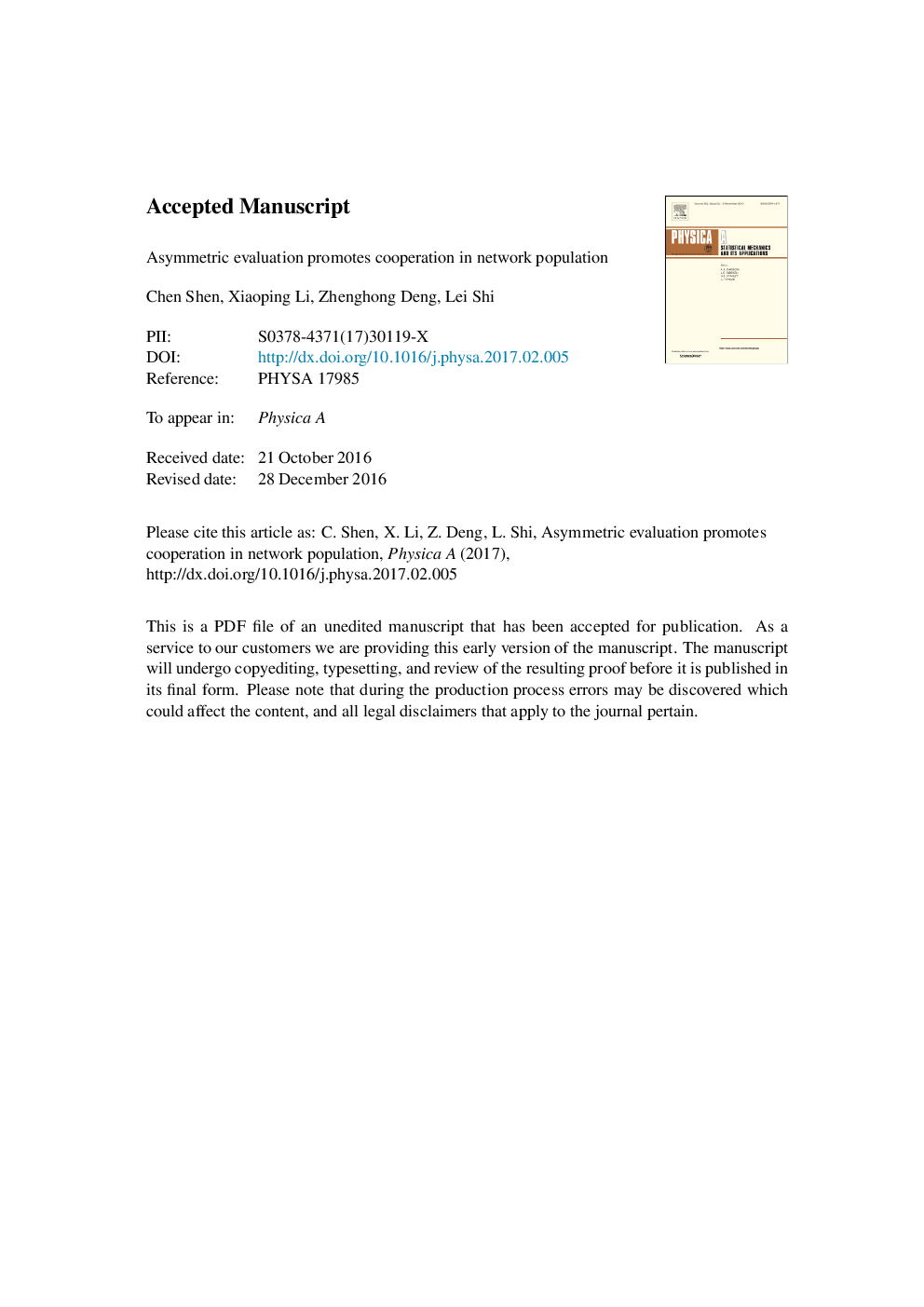| Article ID | Journal | Published Year | Pages | File Type |
|---|---|---|---|---|
| 5103125 | Physica A: Statistical Mechanics and its Applications | 2017 | 17 Pages |
Abstract
The evolution of cooperation remains a fundamental challenge in human society. Many previous studies investigated these questions via spatial reciprocity, where players obtain their payoffs by interacting with their direct neighbors. It has also been verified that environmental factors can influence the evolution of cooperation theoretically and empirically. In reality, however, individuals may have the limit knowledge about their indirect neighbors. Inspired by this fact, we consider an asymmetric fitness calculation mechanism, which only integrates the environment factors into the focal player, to explore the evolution of cooperation. Here, the environmental factor is defined as the average payoff of all individual neighbors, which is regulated by a tunable parameter u. Through numerical simulation, we find that, compared with the traditional version (u=0), that the cooperation level can be greatly enhanced when u is positive. Interestingly, the larger the value of u, the higher the level of cooperation. Finally, to explore the generality of this finding, we have tested the results on different topologies.
Related Topics
Physical Sciences and Engineering
Mathematics
Mathematical Physics
Authors
Chen Shen, Xiaoping Li, Lei Shi, Zhenghong Deng,
